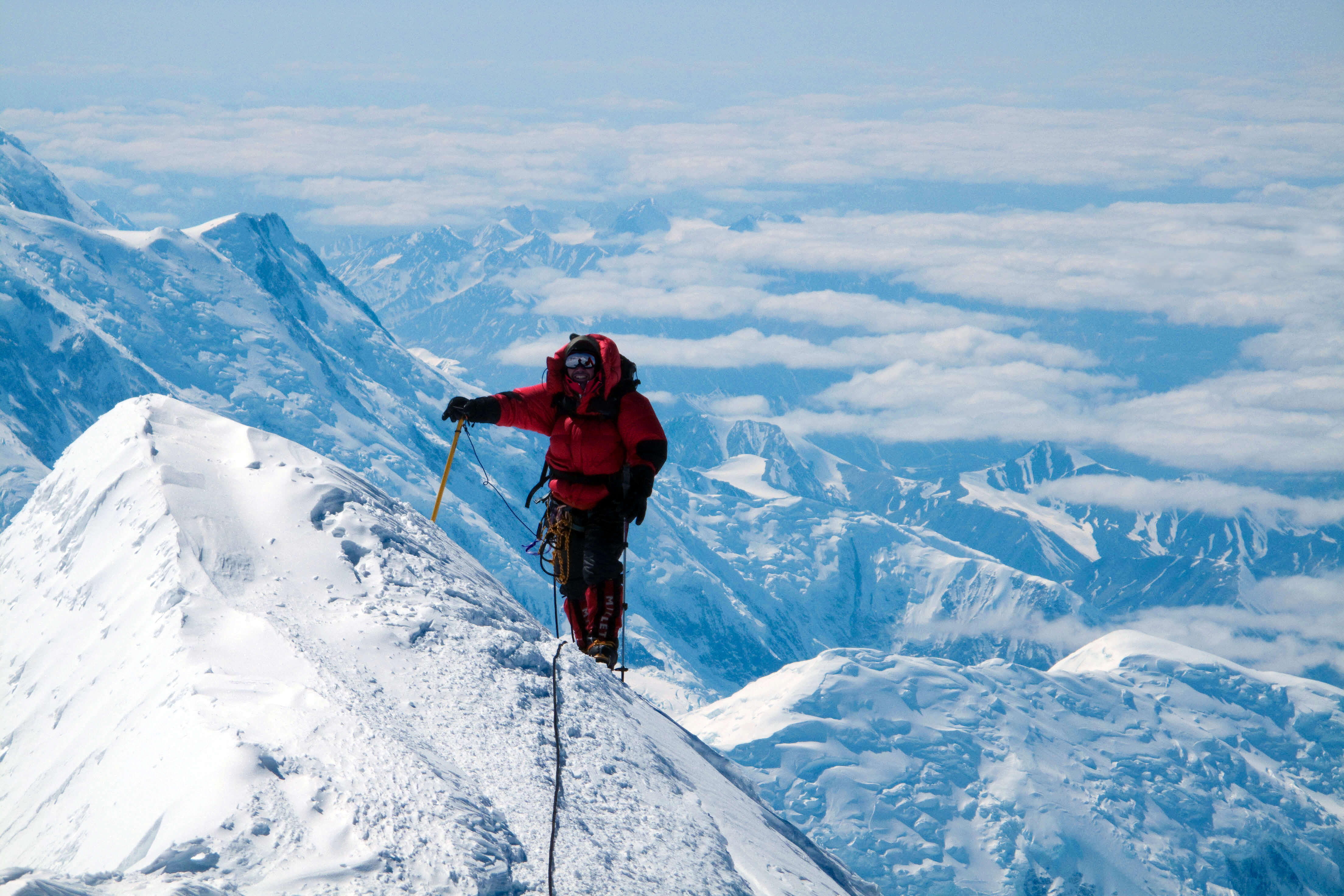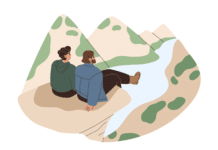Living his purpose through his achievements in the great outdoors, Albert Bosch is one of the planet’s foremost adventure sports athletes as well as one of its leading advocates.
Some of the intrepid Spaniard’s noteworthy achievements include walking unassisted (98 per cent solo) from the coast of Antarctica to the South Pole, scaling the tallest mountain on each of the seven continents and participating in nine Dakar Rallies. Bosch routinely adapts methods to accomplish his goals without damaging the environment. In his last Dakar Rally, he drove an electric car; when running a marathon, he carries a bag for refuse.
The adventure sportsman is also a prolific entrepreneur, noting that his life as an adventurer would be impossible without the skills he’s developed in business. His latest venture, INVERGROUP, is a dedicated platform for projects in the green energy sector.
In his books, Bosch admits his past failures with ease and gratitude, referring to them as “building blocks.” His dedication shines through his work, which is an invaluable resource for others looking to define their purpose, realise their goals and unlock their potential.
We sat down with Albert Bosch to discuss the place where adventure and entrepreneurship meet, as well as our responsibility as leaders to see personal needs and the needs of the planet as one.

How does your background as an entrepreneur inform your life as an adventurer and vice versa?
As an entrepreneur, you’re an adventurer in the world of business, whereas adventure sport is characterised by experiencing the world through its many geographical challenges. As an adventurer, I understand how to balance and manage risk to achieve my goals, both economic and personal. The skills I’ve developed as an adventurer have been hugely influential when it comes to my business practice.
Conversely, as an adventurer, the sporting element is only a small aspect of what I do. Recruiting, building and coordinating a team, preparing materials and planning an expedition are necessary skills when it comes to making a career in adventure sports. My background as a businessman makes my life as an adventurer possible.
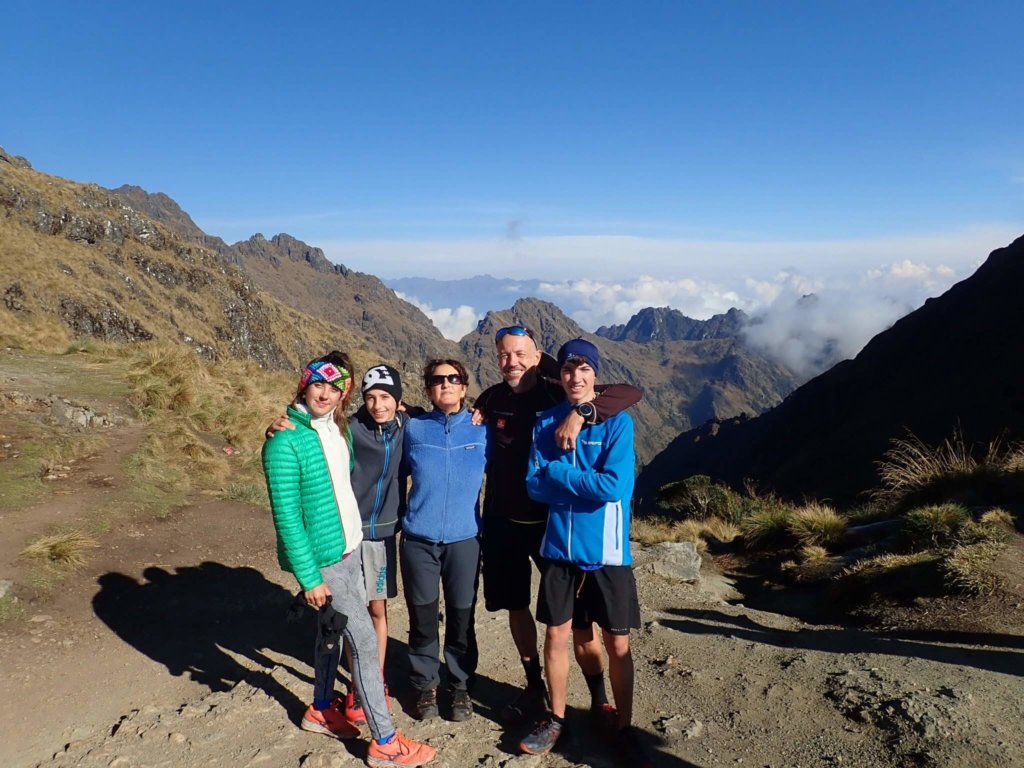
What inspired you to take this path?
Career-wise, I longed for autonomy: life is short, and our time on Earth is precious. It has become increasingly important to me to prioritise my activities, so I’m able to accomplish goals related to what I find most interesting in life.
I began participating in marathons, the Dakar Rally and other competitive organised adventure sporting events. At a certain point, I discovered I could merge these passions and make a living doing what I love. Now, I’m 53 and still very active. I’ve built a lifestyle that allows me to take part in projects external to my business, just for personal interest’s sake, but the goals of each are always intertwined. My philosophy is that I’m the entrepreneur of my adventures.
Inspiration can come when you least expect it. Our South Pole Expedition – an extremely complicated undertaking involving a two-month trek where I was completely separated from civilisation – is one such example. I set out with a teammate, but we were blocked by inclement weather for fifteen days, and only 31 kilometres in, he was evacuated. I completed the next 1,200 kilometres on my own, and by the end, I had spent 48 days alone in Antarctica.
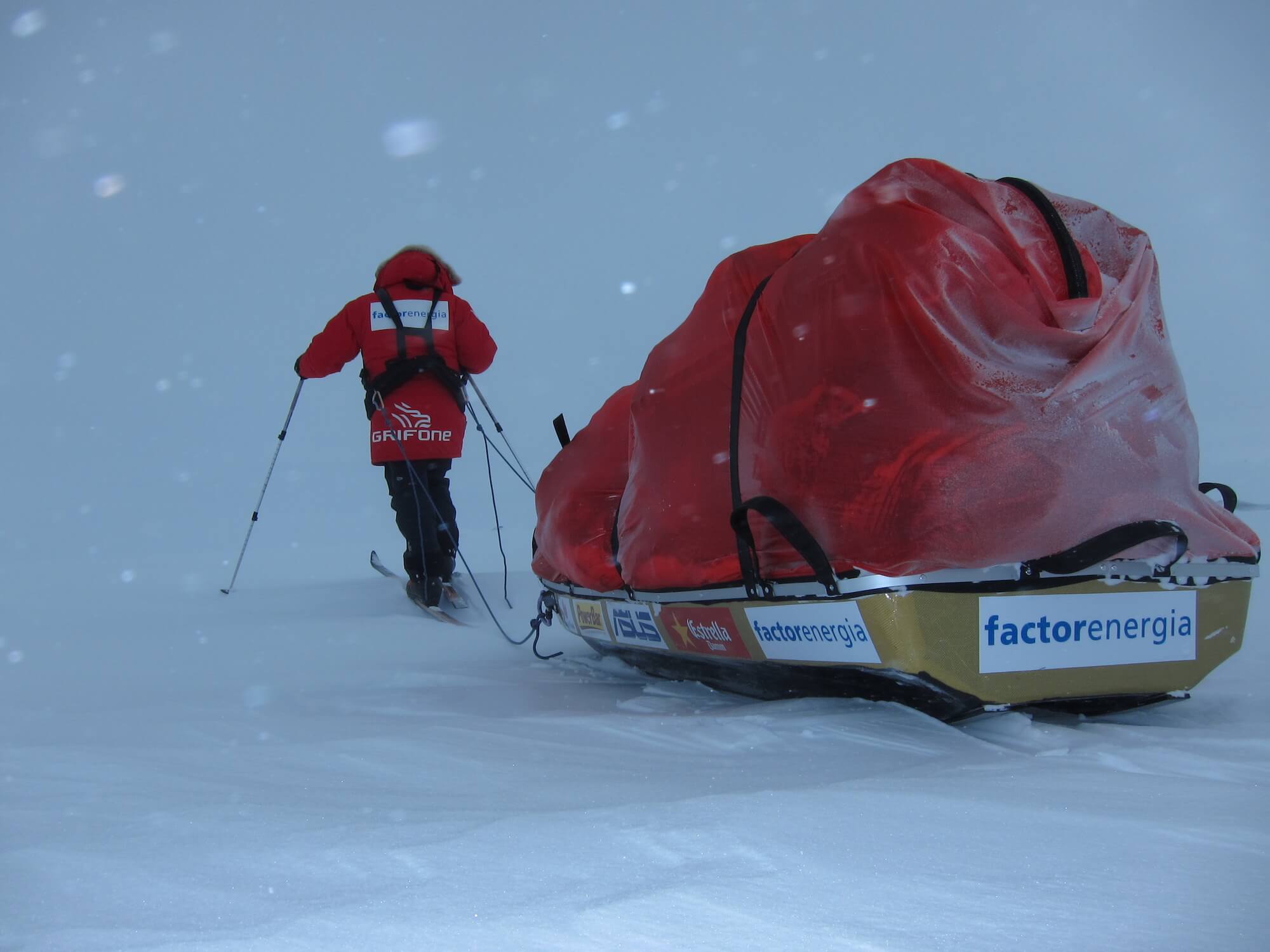
In situations like this, it is impossible not to feel fear. Forced to adapt to the loneliness and danger of my situation, I was overcome with a new sense of humility – I became comfortable with uncertainty. If you begin to see your fear as a companion, then it becomes a motivator and no longer a hindrance to your success. It’s a delicate balance: we must be radical in our vision and manage our fear.
Your latest book identifies the characteristics that define a leader of the future. What are these characteristics, and how can we work to further develop them in ourselves?
It’s important to evaluate the differences between a goal and a purpose. To realise your potential, your goals and purpose coincide. In my world, we realise these goals in teams, but ‘team’ is a flexible concept that can be attributed to the achievement of any mission – personal or collaborative.
Find motivated people who hold similar values and surround yourself with them. Humility, connectivity to your purpose and community are all necessary aspects of achieving a passion-driven goal.
You make a point of acknowledging failure. Why is this important?
Our failures are not handicaps. Rather, they are building blocks – something to learn from. In my first biography, I wrote only about my successes, which did not reflect reality. I’ve failed because I chose a difficult path, and that’s a positive.

In January 2015, I returned to the Dakar Rally with the first-ever electric car in the race. It took two years of preparation as well as the backing of countless sponsors and investors. There were a lot of eyes on us, and many people were hoping we would fail. We did. On the third day of the race, the car broke down, and that was the end of it. It took another two years before anyone was able to complete the Dakar Rally with an electric car. Despite not finishing the race, however, every kilometre we covered on that initial run broke new ground as the first clean vehicle participating in the event, meaning no fossil fuels and no pollutant emissions.
“There’s nothing worse than climbing a mountain, risking your finances and your health, only to reach the summit and realise that this was not the mountain you wanted to climb.”
What do you mean by less stopwatch, more compass?
Sometimes, we lack definition when it comes to vision and purpose. When I say, ‘less stopwatch, more compass,’ I’m encouraging people to proactively choose their course in life – to give thought to how they approach their personal and business goals.
In both worlds, adventure sports and entrepreneurship, it’s difficult to determine where the motivation stems from. Sometimes, it’s unclear whether it’s for the sake of the adventure itself or for the ego. I continuously ask myself whether I’m doing these things to achieve personal goals or to enhance my public image.
Becoming more in tune with your goals and your genuine purpose can ameliorate the obstacles associated with an overinflated ego. There’s nothing worse than climbing a mountain, risking your finances and your health, only to reach the summit and realise that this was not the mountain you wanted to climb.
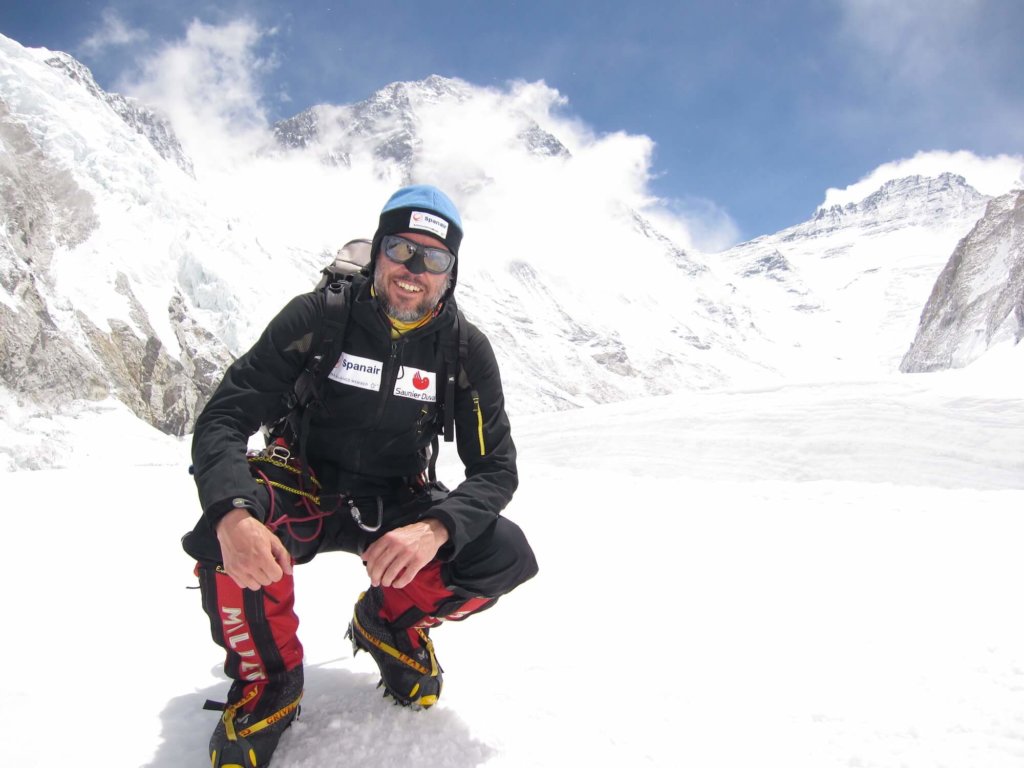
In my early forties, I saw that many of my goals lacked authenticity. Only by looking inwards did I see that my goals and my purpose were not the same. I cared about connecting with nature and working to benefit the environment. Thus, I realised I could no longer take part in events that were damaging to the Earth, which is why I only returned to the Dakar Rally when I could participate with a clean vehicle.
All the projects I take part in now must have a positive environmental impact and allow me to remain an advocate for nature. I use my projects to spread environmental consciousness and promote sustainability.
What is the role of private industry in protecting our environment?
As entrepreneurs and family business members, we need to promote an environmentally conscious attitude in everything we do. Leaders must decide whether they are going to be a part of the problem or a part of the solution. Environmental awareness is not merely a trend; it must be part of our passion for business.
Recently, I worked with a company that had a great clean water initiative. When I pushed them to be more vocal about this program, they told me they only did it because it was more cost-efficient, not because they were environmentally focused.
The disconnect, even in this case, where it has a positive but ultimately tangential outcome, is what we need to combat – making decisions to appease aspects of our business that lack synergy with our philosophies.
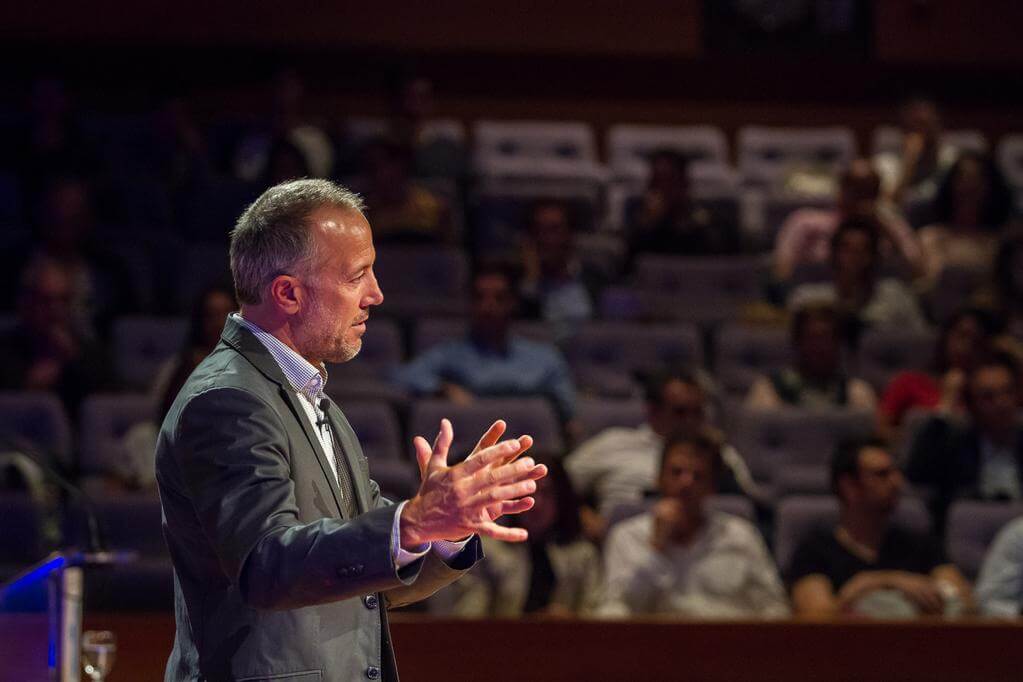
“The fate of the planet rests with intelligent entrepreneurs who view their needs and the needs of the environment as one.”
How do you wish to see entrepreneurship and environmentalism interact?
The space between entrepreneurship and environmentalism is filled with opportunity. The world is slowly moving towards environmentalism because pollutants are beginning to affect our day-to-day. Still, though, the conscious minority is precisely that – a minority. That said, I’m realistically optimistic.
Small businesses are rightly concerned with cost. When a family’s well-being hangs in the balance, I empathise with doing what’s best for the household, versus doing what’s best for the planet. There is plenty of overlap between entrepreneurial opportunity and environmentally focused decision-making, but my realistic optimism knows that change will not happen overnight.
The fate of the planet rests with intelligent entrepreneurs who view their needs and the needs of the environment as one. That you’re not an NGO is inconsequential. Intelligent modern entrepreneurship means balancing the impact between society and the environment and discovering the economic opportunities therein.
Can family businesses afford to neglect this responsibility?
Our society has a larger collective consciousness where capital is irrelevant. The more successful a tobacco company is, the more people suffer and die; they exist purely in a profit-based mentality. We must draw a hard line on how we’re going to participate in society and make sure this boundary includes an environmental solution. Only then can we finish the day and know that we’ve made a positive impact. Only then can we arrive at home and proudly tell our children about what we do for a living.
Everyone wants to be connected to something positive, to set aside monetary goals and concentrate on the more demanding, more time-consuming work of preserving our environment. Our planet is worth the financial risk, and as more people commit, the lower that risk will become.


